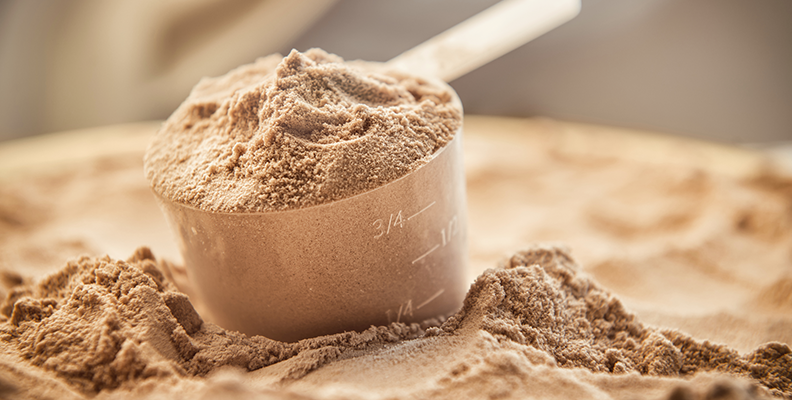It is common knowledge that protein plays a vital role in the diet of every type of athlete, from weight lifters and cross-fitness athletes to triathletes and marathon runners. These individuals expend more energy on a daily basis, requiring an increase in nutrients to sustain their energy levels as well as to repair and strengthen their muscle tissue. Protein, a macronutrient, is vital for human performance and the correct functioning of our bodies. It’s a building block for muscles, organs, hair and nails, and is relied upon by our digestive and immune systems. It’s also a main source of energy. In fact, the major fates of dietary amino acids in the Western diet appears to be the production of glucose and is estimated to account for up to 60% of the body’s glucose production.1 High-protein diets are popular among athletes looking to build lean muscle, but how much is enough?
Daily protein requirements are calculated based on multiple factors, including body weight, age, and exercise intensity and duration. It is generally recommended that anywhere from 10 to 30% of your caloric intake is derived from protein sources, with the rest of the calories balancing out between healthy fats and carbohydrates. The Food and Nutrition Board of the National Academy of Sciences has set the Recommended Dietary Allowances (RDA) for protein at 0.8g/kg of bodyweight per day to maintain a nitrogen balance in the body. Children and women who are pregnant or lactating have a slightly higher gram-per-body weight recommendation.2 While the RDA may be effective in maintaining health, some studies indicate that it is not enough for optimal health and performance, and suggest that more protein may be needed for athletes and highly active individuals. A negative nitrogen balance indicates that muscle is being broken down and utilized for energy. This use of muscle protein increases when there is a low intake from other energy sources or when protein intake is inadequate. For power and endurance athletes that regularly partake in activities with high levels of energy expenditure, the breakdown of muscle protein is concerning. Thus, according to the Academy of Nutrition and Dietetics, Dietitians of Canada and the American College of Sports Medicine, the daily recommendations for power and endurance athletes are slightly higher than that for non-athletes. The range for power athletes is 1.2 to 1.7 g/kg of high-quality protein per day, and for endurance athletes the recommended range is 1.2 to 1.4 g/kg high quality protein per day.3 For a 150-lbs. power athlete, that is 82 to 116g, or 82 to 95g for an endurance athlete with the same weight.
Most individuals consuming a balanced diet easily meet, if not exceed, the recommended protein values. Ideally, it is important to make sure your meal plan is individualized to your specific needs and performance goals.
REFERENCES
1. Bilsborough and Mann, 2006. International Journal of Sport Nutrition and Exercise Metabolism. 16:129-152.
2. Institute of Medicine Food and Nutrition Board. Dietary Reference Intakes: Energy, Carbohydrates, Fiber, Fat, Fatty Acids, Cholesterol, Protein, and Amino Acids. Washington, DC: National Academies Press; 2002.
3. Webb, Densie. “Athletes and Protein Intake.” Today’s Dietitian. 1 June 2014: 22. Print.

Featured Product
NITRO-TECH
Nitro-Tech’s original groundbreaking protein formula packs on 70% more muscle and builds more strength than regular whey protein alone.
SAVE $3 at Walmart with Ibotta








